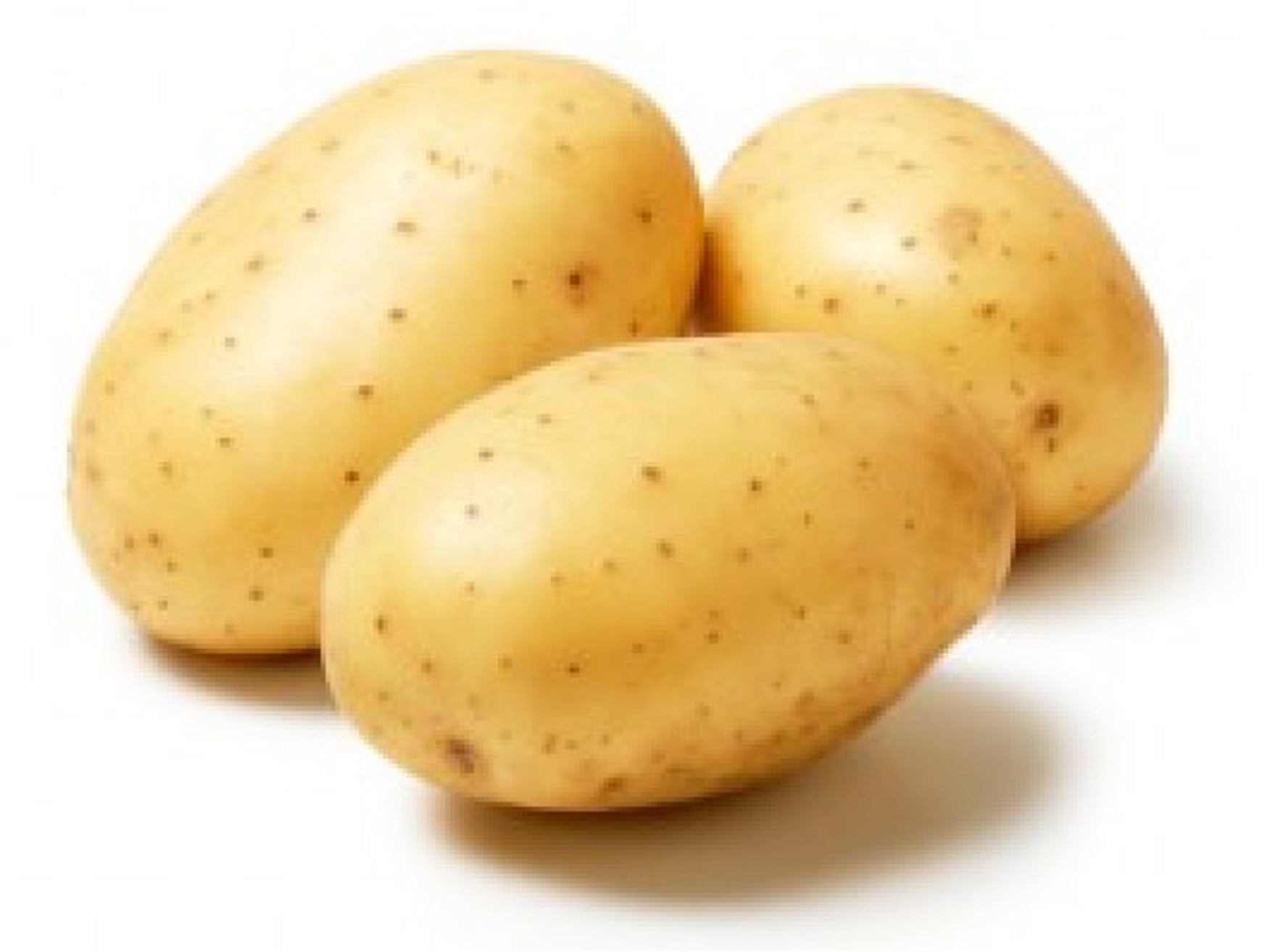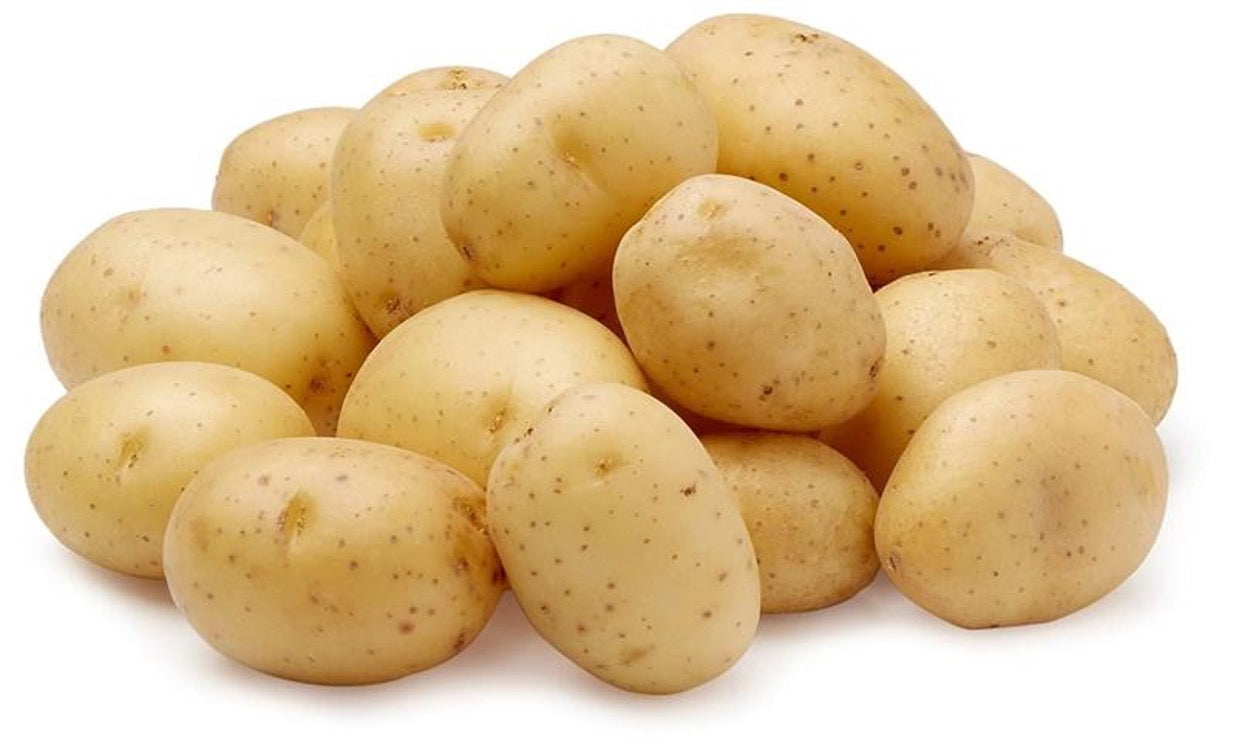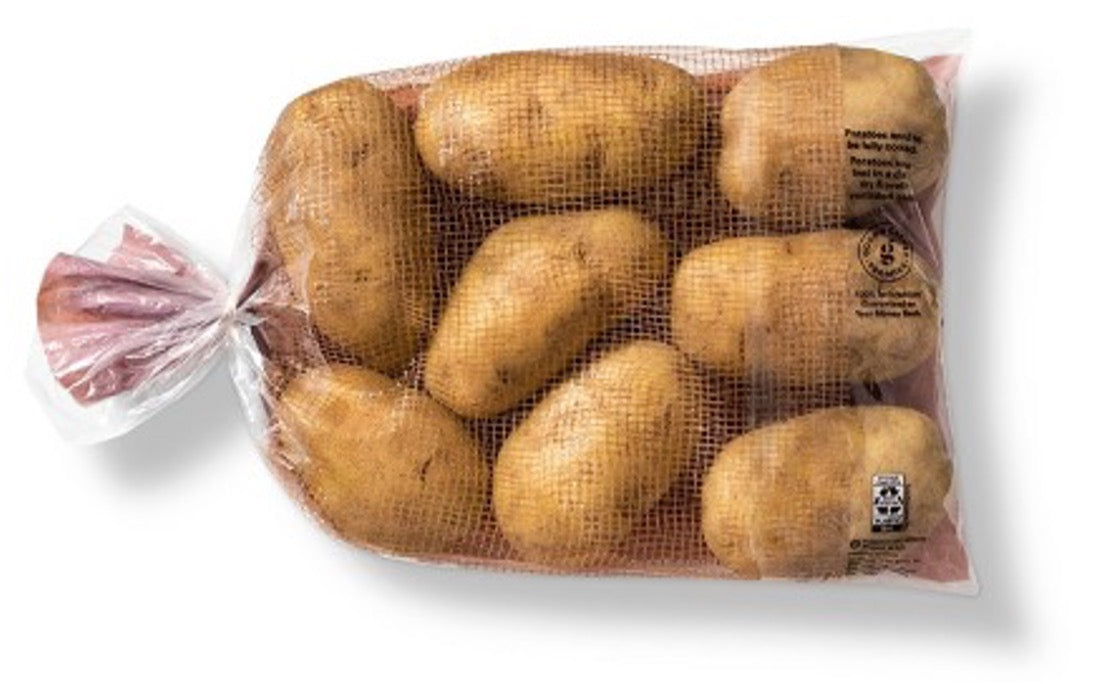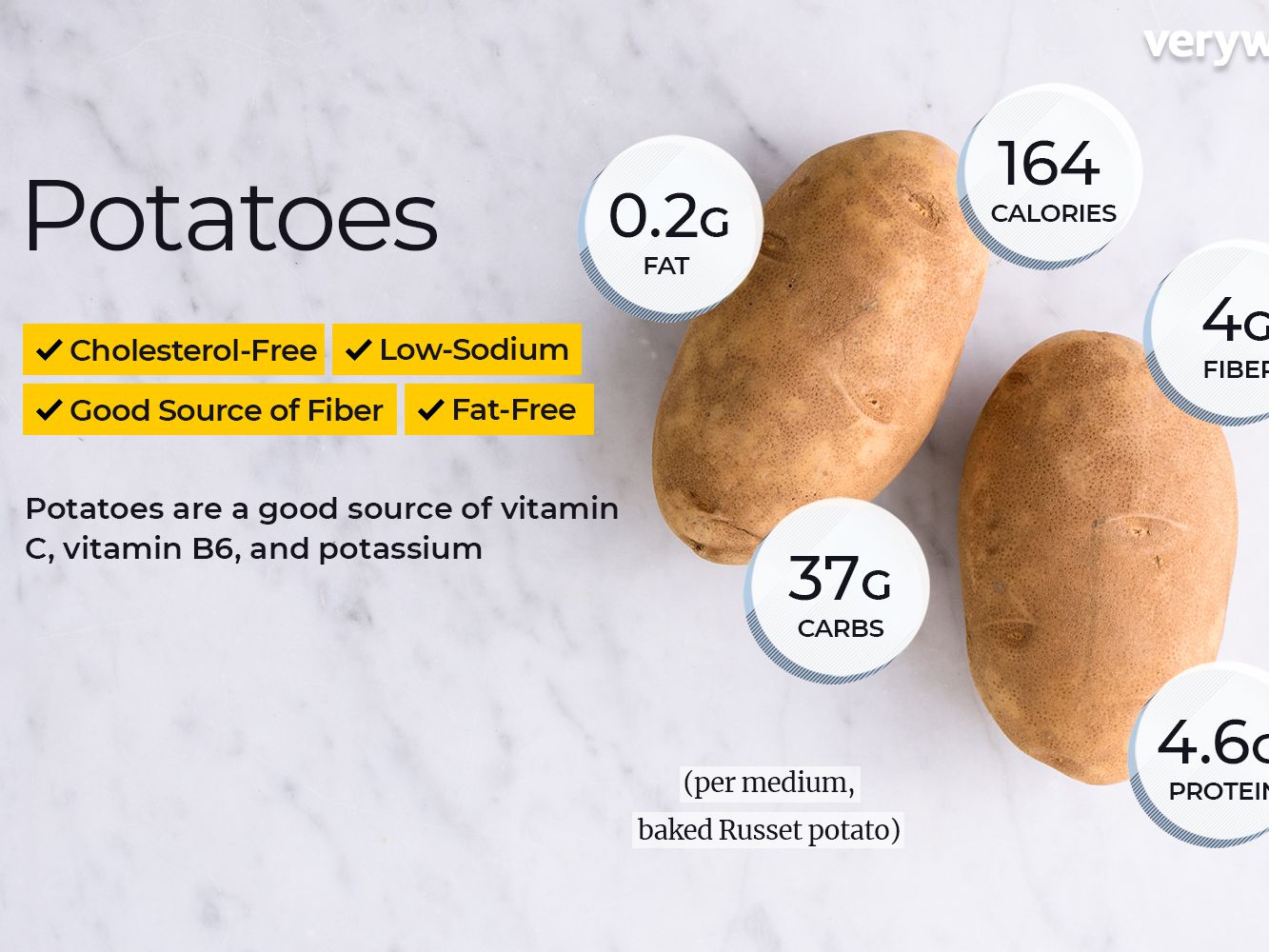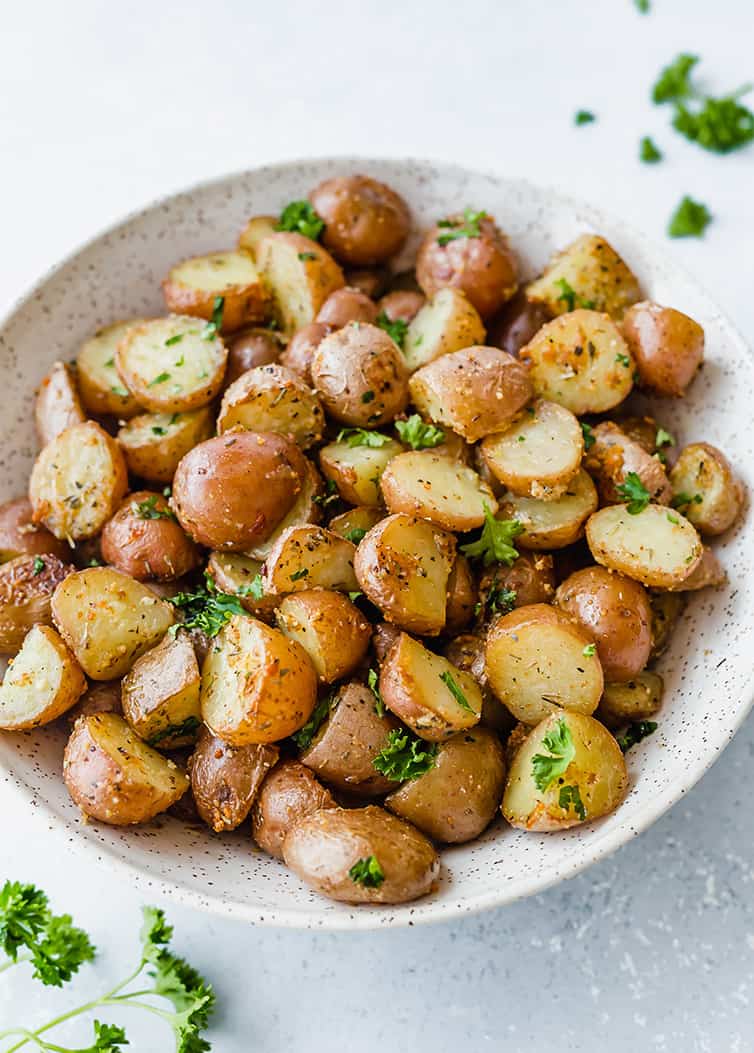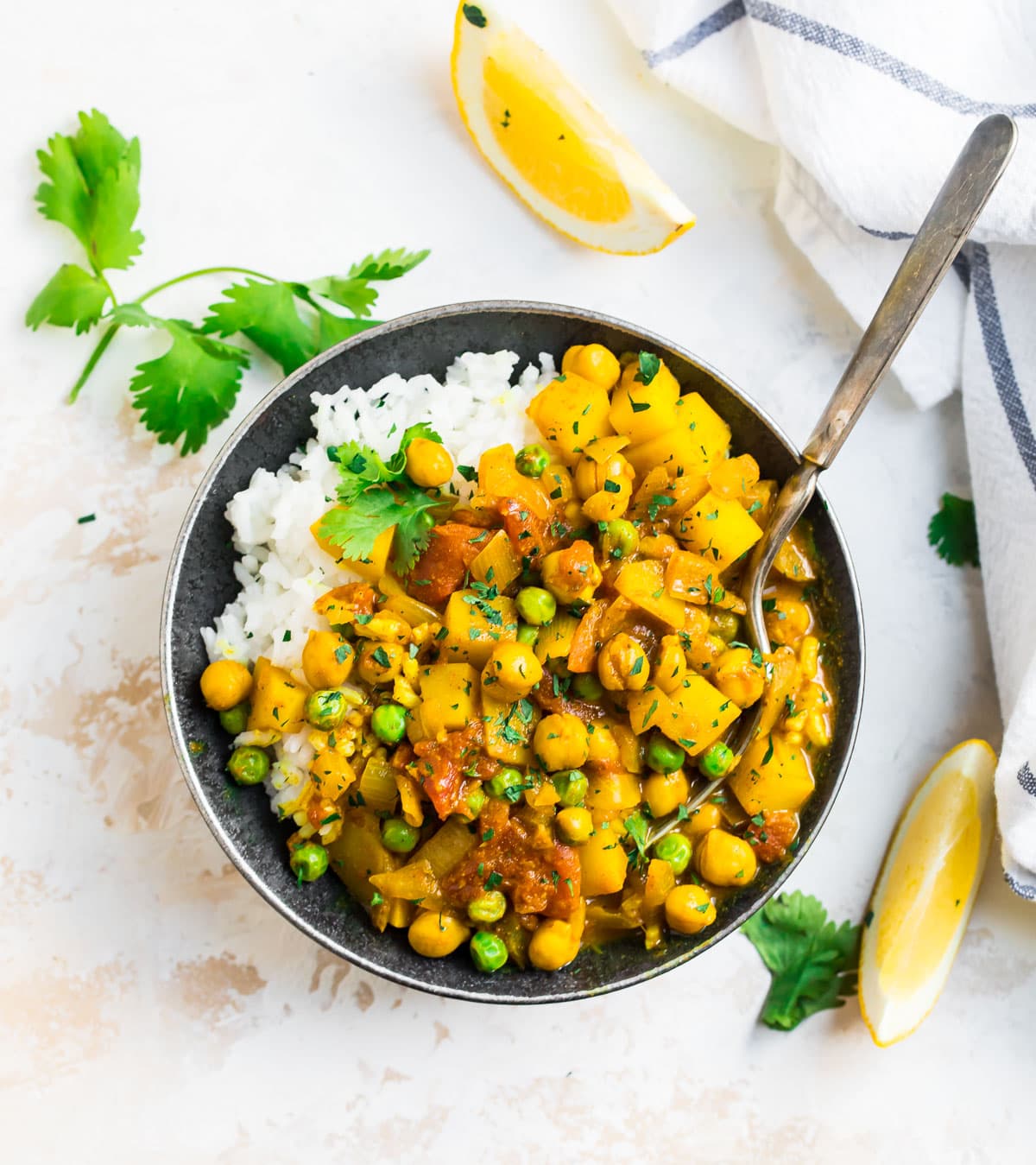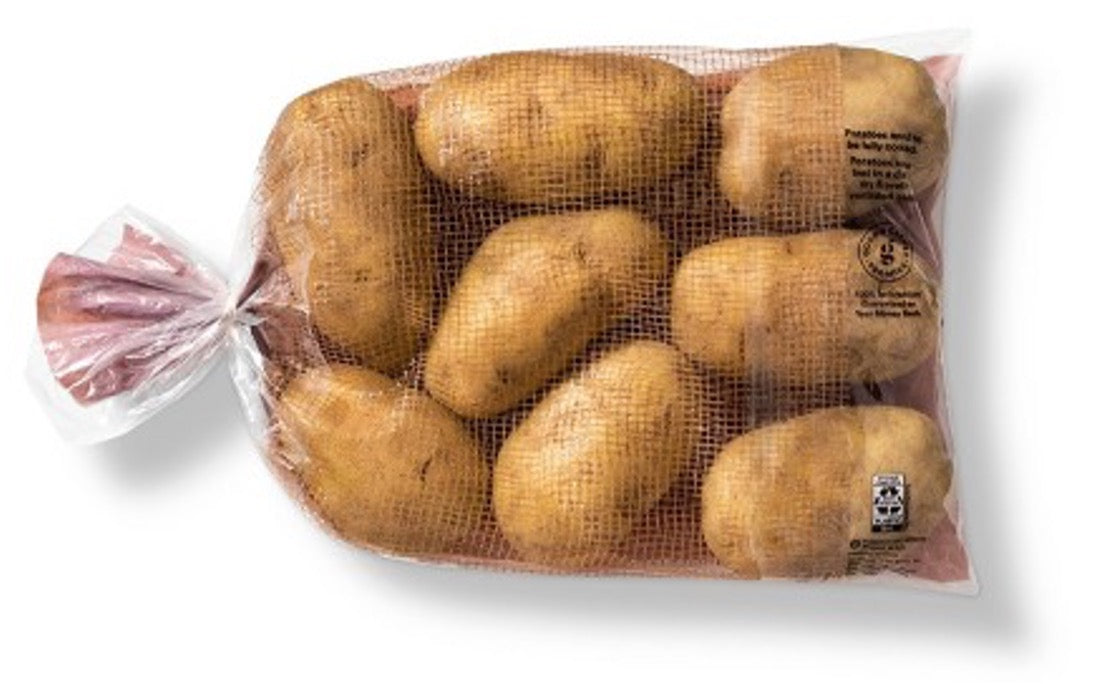Potato
- Product Weight: 454 g
- Category: Fresh Fruits & Vegetables, Grocery & Gourmet Foods, Out of Stock, Vegetables

Potatoes are high in starch and have developed a bad reputation due to the popularity of low-carb and Paleo diets. However, carbohydrates aren't bad for your health as long as you watch your portions. In fact, they're essential as a source of energy. Potatoes are inexpensive, versatile, can be stored for long periods of time, and are a good source of fiber, potassium, and vitamin C.
Potato Nutrition Facts
The following nutrition information is provided by the USDA for one medium (173g) baked russet potato (2 1/4" to 3 1/4" in diameter) with peel and no added salt or toppings.
- Calories: 164
- Fat: 0.2g
- Sodium: 24mg
- Carbohydrates: 37g
- Fiber: 4g
- Sugars: 1.9g
- Protein: 4.6g
Carbs
While a medium russet potato provides 37 grams of carbohydrates, only 4 grams of which are from fiber. Most of the carbs are starch and only a small amount (under 2 grams) is sugar. Starches are quickly broken down during digestion to sugar in the bloodstream, resulting in a quick rise in blood sugar levels.
The glycemic index of a food is an indicator of the impact of food on blood sugar. Study results vary, but the glycemic index of potatoes appears to average in the 80s, which is considered high. By comparison, table sugar has a glycemic index of 59, making potatoes higher on the glycemic index than sugar. Waxy varieties such as new red potatoes are slightly lower on the glycemic index than russet potatoes.
Another way to represent the glycemic effect of food is the glycemic load, which takes into account the serving size. A medium potato fares better here, with a moderate glycemic load of 17. But a large potato has a glycemic load of 29, which is high.
You can combat the blood sugar rush by serving potatoes as part of a balanced meal such as with a piece of salmon and a side of green beans.
The addition of protein from the salmon and fiber from the green beans helps slow down the digestion and absorption of the starch from the potatoes.
Fat
Potatoes have only a trace of fat, and that tiny amount is split between saturated and polyunsaturated fat. They also have trace amounts of omega-3 fatty acids and omega-6 fatty acids. As a vegetable, they have no cholesterol. Unless you add a topping with fat or fry your potatoes, they are basically fat-free.
Protein
Potatoes have a small amount of protein, but the protein is of high quality because of its amino acid composition and its digestibility. This means the protein quality is similar to that of eggs and actually higher than that of soybeans and other legumes.2
Vitamins and Minerals
Potatoes provide many vitamins and minerals, including vitamin C, vitamin B6, and potassium. They are a good source of folate, niacin, iron, magnesium, phosphorus, copper, and manganese. To get the most out of the potato, you should eat the potato skin as well as the flesh, as some micronutrients are more concentrated in the skin.
Health Benefits
Potatoes should be considered a nutritious vegetable, even though they contain a lot of starch. Their other healthful plant compounds make them a worthwhile part of a balanced diet.
Regulates Blood Pressure
Potatoes are high in potassium, which works in opposition to sodium to help regulate blood pressure and fluid balance. Research shows that the potassium in potatoes is just as high and as usable by the body as when consumed as a dietary supplement.3 Potassium is also essential for normal muscle and nerve function.
Supports the Immune System
Vitamin C is needed for normal immune system function, blood clotting, and strong connective tissue and blood vessel walls. Since vitamin C can't be stored in the body, it must be consumed through food. One baked potato provides about 19% of the daily value for vitamin C.4
Repairs Oxidative Damage
Potatoes also have a good concentration of antioxidant phytonutrients, including vitamin C, carotenoids, and polyphenols. These compounds can help repair cells damaged by oxidative stress, which can contribute to a number of chronic diseases.5
Prevents Chronic Disease
Fiber is important for digestion, blood sugar control, weight management, heart health, and more. Potatoes, especially when the peel is consumed, are a good source of dietary fiber.
Low in FODMAPs
Potatoes are low in fermentable oligo-, di-, mono-saccharides, and polyols (also known as FODMAPs), short-chain carbohydrates that can lead to bloating and sensitivity in the digestive tract. In some people with irritable bowel syndrome (IBS) and Crohn's disease, following a low-FODMAP diet helps relieve symptoms. Potatoes are allowed on this diet.
Potatoes are high in starch and have developed a bad reputation due to the popularity of low-carb and Paleo diets. However, carbohydrates aren't bad for your health as long as you watch your portions. In fact, they're essential as a source of energy. Potatoes are inexpensive, versatile, can be stored for long periods of time, and are a good source of fiber, potassium, and vitamin C.
Potato Nutrition Facts
The following nutrition information is provided by the USDA for one medium (173g) baked russet potato (2 1/4" to 3 1/4" in diameter) with peel and no added salt or toppings.
- Calories: 164
- Fat: 0.2g
- Sodium: 24mg
- Carbohydrates: 37g
- Fiber: 4g
- Sugars: 1.9g
- Protein: 4.6g
Carbs
While a medium russet potato provides 37 grams of carbohydrates, only 4 grams of which are from fiber. Most of the carbs are starch and only a small amount (under 2 grams) is sugar. Starches are quickly broken down during digestion to sugar in the bloodstream, resulting in a quick rise in blood sugar levels.
The glycemic index of a food is an indicator of the impact of food on blood sugar. Study results vary, but the glycemic index of potatoes appears to average in the 80s, which is considered high. By comparison, table sugar has a glycemic index of 59, making potatoes higher on the glycemic index than sugar. Waxy varieties such as new red potatoes are slightly lower on the glycemic index than russet potatoes.
Another way to represent the glycemic effect of food is the glycemic load, which takes into account the serving size. A medium potato fares better here, with a moderate glycemic load of 17. But a large potato has a glycemic load of 29, which is high.
You can combat the blood sugar rush by serving potatoes as part of a balanced meal such as with a piece of salmon and a side of green beans.
The addition of protein from the salmon and fiber from the green beans helps slow down the digestion and absorption of the starch from the potatoes.
Fat
Potatoes have only a trace of fat, and that tiny amount is split between saturated and polyunsaturated fat. They also have trace amounts of omega-3 fatty acids and omega-6 fatty acids. As a vegetable, they have no cholesterol. Unless you add a topping with fat or fry your potatoes, they are basically fat-free.
Protein
Potatoes have a small amount of protein, but the protein is of high quality because of its amino acid composition and its digestibility. This means the protein quality is similar to that of eggs and actually higher than that of soybeans and other legumes.2
Vitamins and Minerals
Potatoes provide many vitamins and minerals, including vitamin C, vitamin B6, and potassium. They are a good source of folate, niacin, iron, magnesium, phosphorus, copper, and manganese. To get the most out of the potato, you should eat the potato skin as well as the flesh, as some micronutrients are more concentrated in the skin.
Health Benefits
Potatoes should be considered a nutritious vegetable, even though they contain a lot of starch. Their other healthful plant compounds make them a worthwhile part of a balanced diet.
Regulates Blood Pressure
Potatoes are high in potassium, which works in opposition to sodium to help regulate blood pressure and fluid balance. Research shows that the potassium in potatoes is just as high and as usable by the body as when consumed as a dietary supplement.3 Potassium is also essential for normal muscle and nerve function.
Supports the Immune System
Vitamin C is needed for normal immune system function, blood clotting, and strong connective tissue and blood vessel walls. Since vitamin C can't be stored in the body, it must be consumed through food. One baked potato provides about 19% of the daily value for vitamin C.4
Repairs Oxidative Damage
Potatoes also have a good concentration of antioxidant phytonutrients, including vitamin C, carotenoids, and polyphenols. These compounds can help repair cells damaged by oxidative stress, which can contribute to a number of chronic diseases.5
Prevents Chronic Disease
Fiber is important for digestion, blood sugar control, weight management, heart health, and more. Potatoes, especially when the peel is consumed, are a good source of dietary fiber.
Low in FODMAPs
Potatoes are low in fermentable oligo-, di-, mono-saccharides, and polyols (also known as FODMAPs), short-chain carbohydrates that can lead to bloating and sensitivity in the digestive tract. In some people with irritable bowel syndrome (IBS) and Crohn's disease, following a low-FODMAP diet helps relieve symptoms. Potatoes are allowed on this diet.



